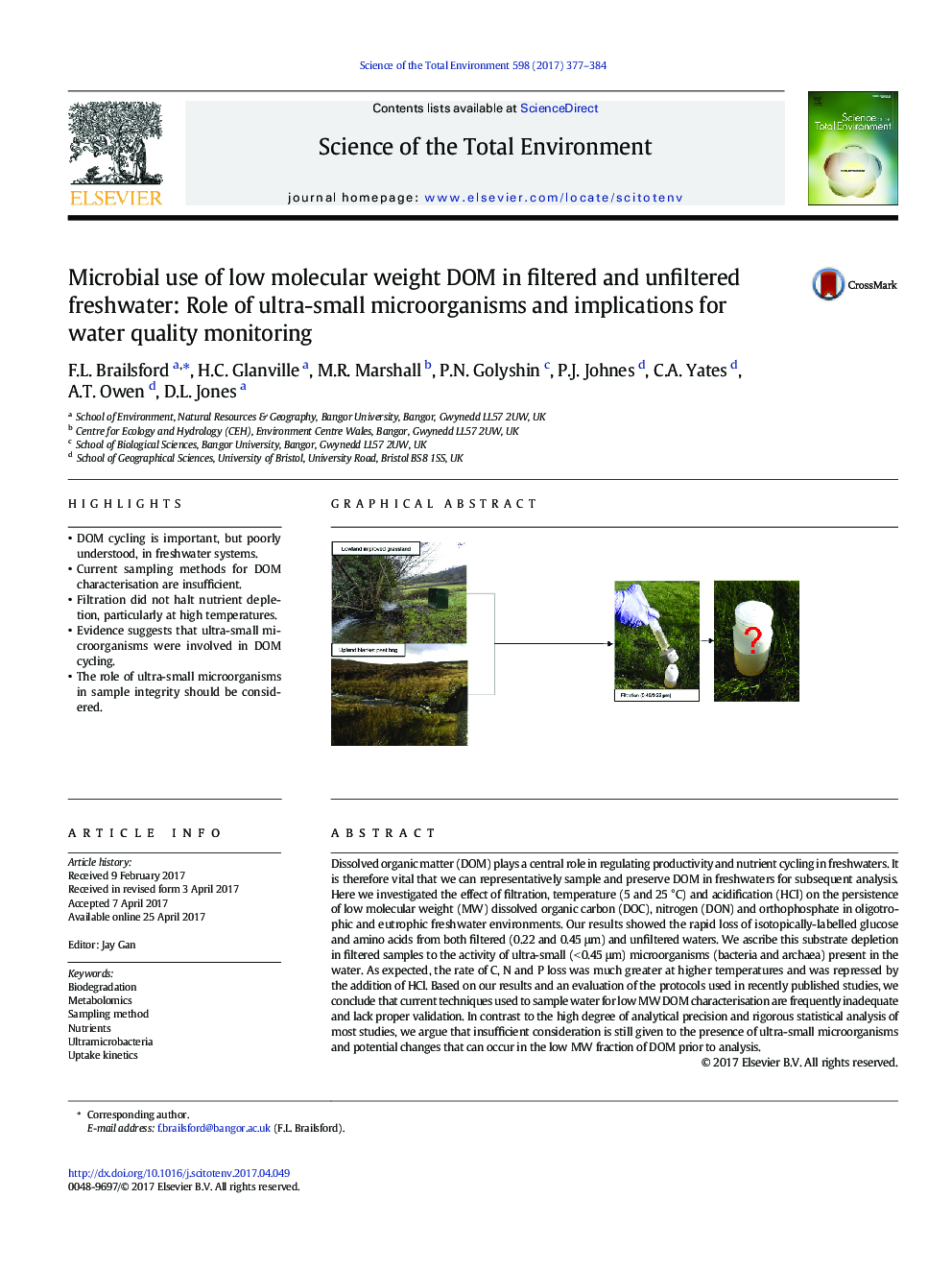| Article ID | Journal | Published Year | Pages | File Type |
|---|---|---|---|---|
| 5750952 | Science of The Total Environment | 2017 | 8 Pages |
â¢DOM cycling is important, but poorly understood, in freshwater systems.â¢Current sampling methods for DOM characterisation are insufficient.â¢Filtration did not halt nutrient depletion, particularly at high temperatures.â¢Evidence suggests that ultra-small microorganisms were involved in DOM cycling.â¢The role of ultra-small microorganisms in sample integrity should be considered.
Dissolved organic matter (DOM) plays a central role in regulating productivity and nutrient cycling in freshwaters. It is therefore vital that we can representatively sample and preserve DOM in freshwaters for subsequent analysis. Here we investigated the effect of filtration, temperature (5 and 25 °C) and acidification (HCl) on the persistence of low molecular weight (MW) dissolved organic carbon (DOC), nitrogen (DON) and orthophosphate in oligotrophic and eutrophic freshwater environments. Our results showed the rapid loss of isotopically-labelled glucose and amino acids from both filtered (0.22 and 0.45 μm) and unfiltered waters. We ascribe this substrate depletion in filtered samples to the activity of ultra-small (< 0.45 μm) microorganisms (bacteria and archaea) present in the water. As expected, the rate of C, N and P loss was much greater at higher temperatures and was repressed by the addition of HCl. Based on our results and an evaluation of the protocols used in recently published studies, we conclude that current techniques used to sample water for low MW DOM characterisation are frequently inadequate and lack proper validation. In contrast to the high degree of analytical precision and rigorous statistical analysis of most studies, we argue that insufficient consideration is still given to the presence of ultra-small microorganisms and potential changes that can occur in the low MW fraction of DOM prior to analysis.
Graphical abstractDownload high-res image (405KB)Download full-size image
